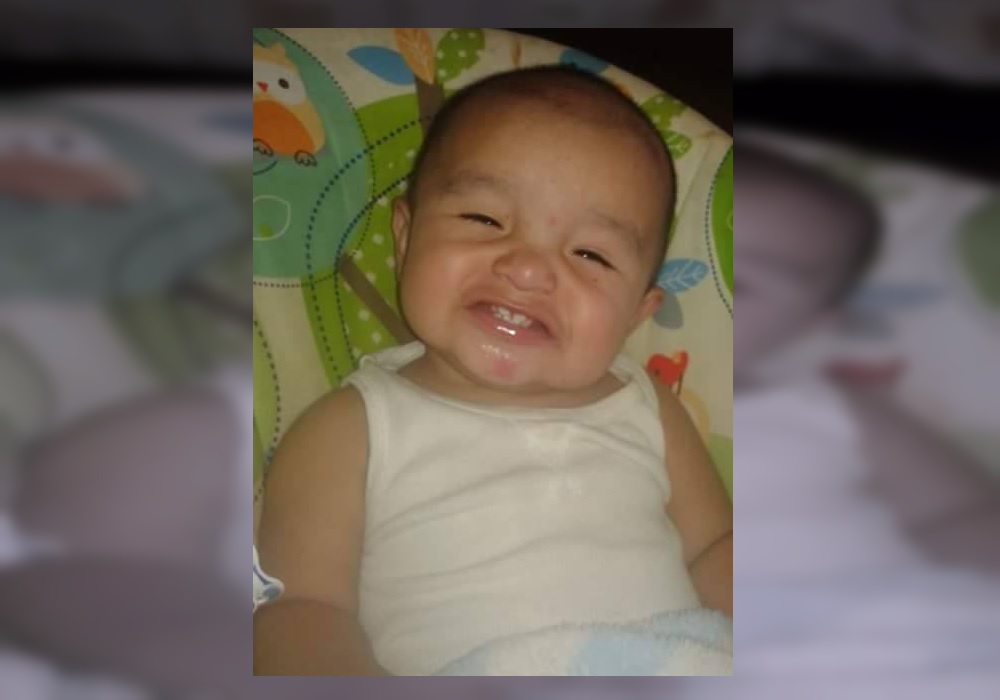A defence lawyer says a man who is accused of killing his 19-month-old son and leaving him outside an Edmonton church was an inept parent, but not a murderer.

Joey Crier and his then-girlfriend Tasha-Lee Doreen Mack were each charged with second-degree murder in the death of Anthony Joseph Raine. The toddler’s lifeless body was found outside the Good Shepherd Anglican Church in April 2017.
Crier has pleaded not guilty. Mack was earlier convicted of manslaughter.
Crier’s lawyer, Alexandra Seaman, delivered a closing statement Friday at his trial.
“The ultimate inquiry that this court must grapple with is whether Mr. Crier is guilty of murder or guilty of manslaughter,” she told Justice David Labrenz, who is hearing the case without a jury.
“There is an admission that this is, in fact, manslaughter.”
She said Crier admits to being negligent, failing to provide the necessaries of life and leaving his son outside the church.
“This court does not know how exactly Anthony Raine died,” she said. “It’s not the court’s function to guess.”
Seaman said the Crown has not established intent to prove second-degree murder.
“It’s a circumstantial case,” she argued.
But Crown prosecutor Allison Downey-Damato said she believes she and her colleague, Monica Sabo, have proved the case.
“The facts of this case are reasonably straight forward,” Downey-Damato said during her closing arguments earlier in the day.

Get breaking National news
She agreed both Crier and Mack owed Anthony a duty of care. But she suggested that evidence shows Crier carried out the abuse and Mack might have participated behind the closed door of a bedroom.
“Against the backdrop of abuse and animus toward Anthony, he was murdered,” argued Downey-Damato.
The medical evidence, she said, showed that the boy suffered multiple blows to his head. That trauma damaged nerves in his brain, which court previously heard contributed to his death.
“Anthony’s body tells us what happened to him,” she said. “This was not a loss of control.
“This was a baby who was subjected to a series of ongoing assaults.”
Downey-Damato added that evidence showed Anthony did not die immediately.
“His death was three to 18 hours later,” she said. “His injuries would have been obvious and apparent to everybody.”
She said Crier didn’t ask for help and kept Anthony hidden and isolated until he was abandoned outside the church.
“No one found him for three days.”
Downey-Damato said Crier told police in an interview entered as evidence that Anthony said “dad” as Crier walked away, but Crier acknowledged he didn’t feel a bond or attachment to his son.
“He abandoned a brutally beaten baby.”
Crier’s lawyer suggested his interview with police suggested he left the boy by the church so someone could find him.
“It’s a reasonable inference that is available,” said Seaman. “That raised a reasonable doubt that he intended to cause him bodily harm.
“His intention, he said, was that somebody would find Anthony.”
Seaman said it’s a case of incompetent parenting by two people who lived transient lives, were impoverished and used drugs.
It’s possible, she added, that Crier could have acted out of frustration and didn’t realize the extent of Anthony’s injuries.
“That does not equate necessarily to reasonable intent for murder,” she said.
Labrenz reserved his decision until Jan. 10.







Comments